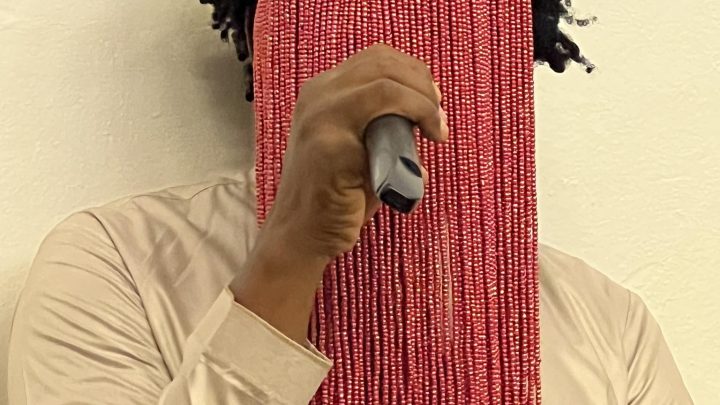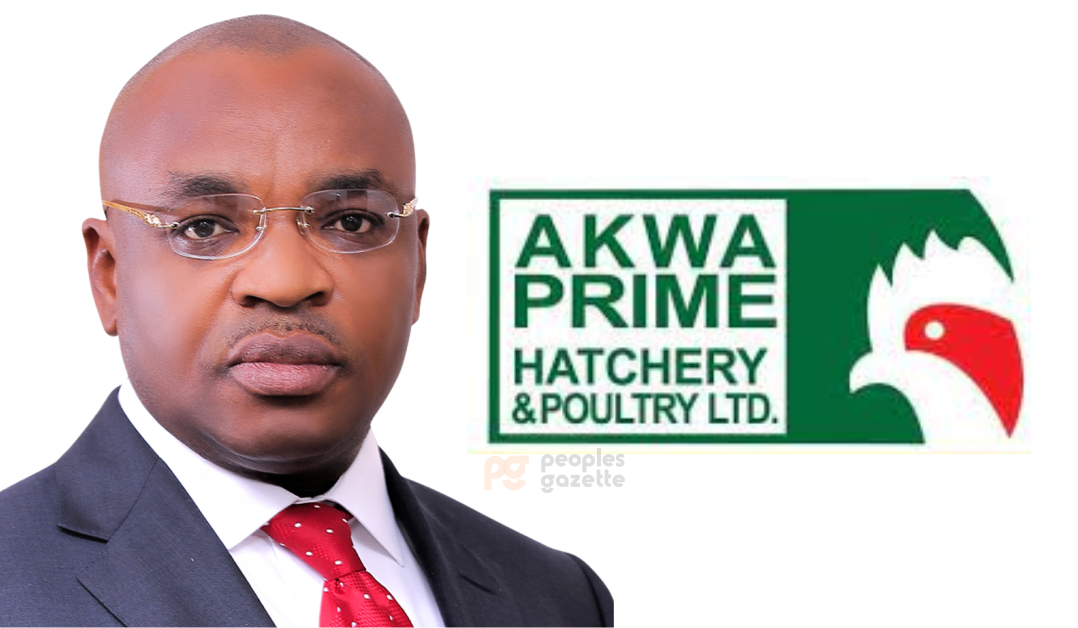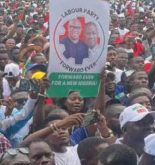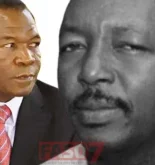One of Africa’s best investigative journalists and Executive Director, Tiger Eye Film, Ghana, Anas Aremeyau Anas last month released a documentary, October 2020, to commemorate not only the massacre of Nigerian youth as the Lekki Tollgate but to also show the pervasive acts of police brutality across the country. In this interview with our Managing Editor, IBANGA ISINE, the multiple-award-wining journalist said –SARS killed more Nigerian youth than ever reported
More horrifying stories of SARS brutality in villages
October 2020 will always be remembered as a bitter moment in Nigerian history. It was a very sad day when many young people lost their lives and the rights of Nigerian citizens were violated. For me and my team, the important thing was to contextualise the events that happened with the aim of outlining historically what happened and to place the facts about the incidents in an iron cast way so that people will not be able to distort what happened. One of the focal points for me and my team was get a balanced story and not what was merely handpicked. We did a story that drew inspiration not only from what happened in Lagos and Abuja but across the states in Nigeria. Let me emphasise that for me and my team, it was a learning process. There were stories that we heard that were more horrifying and there were people we spoke to who but for us, nobody would have heard their stories. We didn’t want to have a situation where only people in Lagos and perhaps Abuja and major towns were the only ones being heard. The #EndSARS protest was a national phenomenon but media reportage mainly concentrated on what was happening in the cities but the activities of human rights abusers were widespread.
You can watch October 2020 here – A film about police brutality in Nigeria and the #ENDSARS protests
It is true that the demonstration happened in Lekki. It is true that several demonstrations happened in many places but when you look at the substance and the reason for the demonstration, you will understand that it had widespread implications. The aim of the documentary, ‘October 2020,’ was to reach out and get voices from villages and communities and to give relatives of the dead the opportunity to tell the world what happened and then put all of that into one beautiful production to let Nigerians watch and reflect. We attempted to provide something for the academia to research and critique. I keep saying that one of the dangerous things we do as journalist is not documenting our findings in a systemic way. When you check our website (Tiger Eye), you will see that we have compartmentalised all the gross human rights abuses that we recorded. Our website serves as a sort of compendium for researchers and the academia to study and draw lessons about what happened, for instance in Kaduna or Port Harcourt. Our aim was to provide a holistic picture about what happened so people would be able to find practical solutions to the problems. Our work was also meant to prick the heart of people who would normally say, ‘yes it was a bad demonstration. People died,’ but won’t do anything about it. The best way to destroy the story is to address what happened in Lagos and Abuja, find some people who were affected and pay a small compensation and think the issue is dead. No. This was a widespread issue and so any committee or action that addresses a few cases is not truthful. SARS atrocities were widespread and a lot of people were affected. What we have done is create a room for all these people to present their sentiments so we can stay together as a people and ensure that it doesn’t happen again in our history. We felt it was very important to record that important history of Nigeria.
No much difference between being a Nigerian and a Ghanaian
Firstly, I don’t see any serious difference between a Nigerian and a Ghanaian. All my life, I have worked and related very closely with Nigerians. For instance, I have had very close relationship with you (Ibanga Isine), Musikilu Mojeed, Theophilus Abba, David Hundeyin and so many more. In fact, what people don’t know is that whenever I want to have a holiday, I go to Nigeria to spend time with my friends. So, I don’t see that difference. In fact, my work in Nigeria didn’t start today. We started with Al Jazeera Investigates’ project about five years ago and we have been a part of Nigeria and trying to build not only its democracy but to also strengthen the critical sectors of the country. Journalism is one of the key components of national development. We train journalists and give them the tools to work with. We have worked most top Nigerian journalists.
You can also read – October 2020: Documentary on Police Brutality Premieres on #EndSARS Anniversary
The issue of human rights abuse cuts across our two countries. What has been happening in Nigeria is not different from what is happening in Ghana. It will shock you to know that one or two of your relatives would have suffered from SARS brutality. We didn’t approach the story from the perspective of coming from Ghana or Nigeria, or Burkina Faso. It is an issue that is affecting us as a people. I needed to give it the strength I give to every other story do. We receive support from MacArthur Foundation and they have been instrumental to all the trainings we have in Nigeria. All we are doing is to ensure that Nigeria’s bourgeoning democracy is strengthened and this is what is needed in all parts of Africa. I may not be a Nigerian but fighting human rights abuse is very dear to my heart.
Cases of human rights violations between Nigeria and Ghana
It is very bad in Nigeria and Ghana. You see, the Nigerian issue is on the front burner because it reached a crescendo where citizens had to say, ‘never again.’ Ghanaians face serious human rights abuses from the security services. The only difference between Ghana and Nigeria is that Ghanaians are too quiet and patient. But we admire the Nigerian spirit. Nigerians won’t let this kind of thing happen ten times but Ghanaians would allow it over twenty times. That is the difference. The problem in Ghana is that we have haven’t reached a situation where citizens will rise up to demonstrate and tell the security services ‘look, we’ve had enough.’ But I can tell you that there are very serious cases of police brutality in Ghana and I have investigated many and I am looking forward to an opportunity to do another big one in Ghana.
How October 2020 documentary was produced
I didn’t work alone. I collaborated with many journalists across Nigeria and we had representatives in every state. We collated data from village to village and we had people who went around making enquiries. We adopted an inclusive approach by giving a listening ear to all those who had stories to tell. Our approach was also research-based because we went into the hinterlands and put our ears to the ground. Some of the people we met were not only maimed but were traumatised and didn’t want to hear the word “SARS.” The moment we tried speaking to them about SARS, you observe that fear comes all over them. We took a systemic process and collated the evidence in a very quiet manner and without shoving our evidence before security people. We didn’t allow them get a hint of what we were doing over the past two years. When you go to our website, you will see when we started publishing the stories.
Evidence from “October 2020” can withstand scrutiny in any legal setting
The answer is yes. We went from the primary level to take evidence. There were certain stages we wrote to security agencies to see if they would react to some of the stories we got but there was zero reaction. What we did was to contextualize and give room for anybody or any group of people who would want to take the matter up to any level. They would be able to find the raw data, the addresses of the victims and gather the people affected and chart a common cause of justice for them. When we did can stand legal scrutiny anywhere in the world.
Handling endemic human rights violation in Africa
It is a very difficult situation. A few months ago, our colleague, Martinez was shot and killed in Cameroon. You remember the story of Ahmed Suale, my colleague at Tiger Eye, who was killed in Ghana. You know what is happening in Burkina Faso and the fact that after Martinez, other journalists have been killed in Cameroon. The level of impunity against whistleblowers and journalists have been on the rise in recent times and as a people, we have to collectively decide that we want to stand firm and say no to these abuses. Recently we read a message from CENOZO and IPI calling out a country’s president for taking on a journalist and sending him to prison. So, we have to be extra alert because it could be you today and me tomorrow. It is a sweeping malaise that is all over the continent. The earlier we stand firm and say no to harassment by security agents and government-back repression of citizens, the better for all of us. For us to have an effective democracy, we need to have a free press and free citizens. If we allow security agents and other people who have decided not to respect the freedoms and rights of citizens and journalists to continue doing what they are doing, then we have a long way to go.
You can also read – How Ex-Governor Ayade awarded questionable university contracts, paid for unfinished projects
It is unfortunate that sometimes people who carry the cross and stand up for society are the ones that are being fought. Ibanga you are an example. David Hundeyin is an example and there are so many others across the continent. This is not to say that as journalists, we do not make mistakes. We make mistakes but if we do, people should not come out with a very hard penalty. When we make honest mistakes and we are remorseful about them, we should be allowed to move forward. We should be allowed to do our work. I doff my hat our comrades for all the great work they are doing across the continent. I want to encourage us to keep on pushing the frontiers of our democracy. What we are fighting today is not for us. It is for generations to come. Let us also not forget that generations before us fought to ensure that we enjoy peace today. If we decide to abandon the struggle, posterity will not forgive us.
Words for security agents in Nigeria and Africa
I want security people to know that while they are in uniform today; beating us and torturing us, tomorrow will come when they will return as civilians and without the uniforms. If they order their colleagues and or subordinates to beat people, they will turn the anger on you when you come to join us as civilians after you leave the service. As security agents, they must learn to respect the fundamental rights of others. The law courts are there. If someone has committed a crime, it is not in the domain of any security agent to torture and kill that person. The rule of law applies to all of us. This applies to security agents who say they only follow instructions because that is the biggest defence they have. Soldiers will say that they follow instructions. I tell you that at the end of the day, they will live with their conscience after committing those atrocities, including murdering people. Whoever is giving you that command will go to his house without feeling anything. But after taking the order to murder an innocent person, will you go home to sleep comfortably?
To Nigerian youth
Nigerian youth occupy an enviable position on the African continent. Their resilience and bravery are something to be studied. But this did not start today. I want to give a shout out to all of the young people in Nigeria who are full of zeal and encourage them to keep the fire on. We are so proud of them. Throughout the history of Nigeria, the youth have never sat back and waited for things to get so bad. The Nigerian youth have served as examples to all African youth to watch and learn and to be steadfast and push the frontiers of democracy no matter the hardship.




